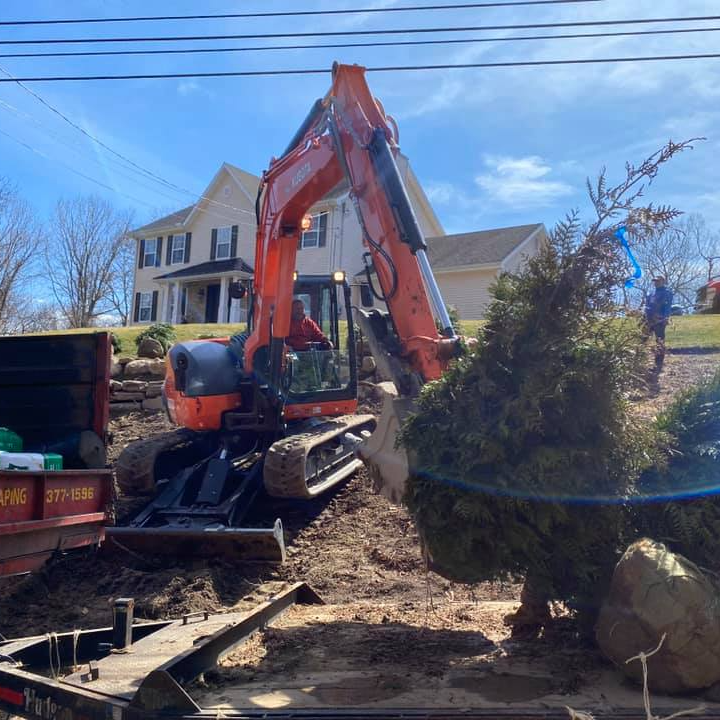Comprehensive Excavation Methods: Grasping the Basics for Success
The careful planning, exact implementation, and careful focus to detail called for in excavation tasks demand a detailed approach that includes various fundamental elements. The real mastery exists not simply in comprehending these principles however in perfectly integrating them to browse the complexities of excavation tasks with skill.
Recognizing Excavation Task Planning

Effective excavation projects are built on the structure of complete and careful preparation. The preliminary stage of any excavation project is the drawing board, where crucial decisions are made that can dramatically influence the result of the project. During this phase, it is vital to collect all appropriate info concerning the website, including topographical surveys, soil composition, and any type of possible dangers that might exist. Comprehending the job extent, timeline, and budget plan restrictions is essential for producing a detailed excavation plan that makes certain the task's success.
One key aspect of excavation project planning is the advancement of a thorough timeline that lays out the series of activities, due dates, and milestones. By meticulously taking into consideration all these factors throughout the preparation phase, excavation tasks can be executed efficiently and effectively, leading to successful end results - septic ohio.
Soil Analysis and Website Evaluation
Performing complete dirt evaluation and site evaluation is a critical action in the preparation phase of any type of excavation job. Soil evaluation involves figuring out the composition, framework, and residential or commercial properties of the soil at the excavation site. This information is vital for comprehending the soil's bearing capability, moisture content, and capacity for erosion, which are crucial consider determining the excavation approaches and tools needed for the task.
Site analysis goes past dirt evaluation and encompasses a more comprehensive analysis of the general site problems. This evaluation includes identifying any type of possible dangers, such as below ground utilities, environmental issues, or unsteady surface, that can impact the excavation procedure. By thoroughly evaluating the website, project supervisors can develop effective excavation methods that focus on safety, efficiency, and environmental security.
Utilizing advanced innovations like ground-penetrating radar, soil tasting, and drone surveys can enhance the precision and performance of dirt analysis and site analysis. Spending time and sources in these initial actions can ultimately conserve time and prevent expensive delays or difficulties during the excavation procedure.
Equipment Option and Application
Reliable excavation tasks depend greatly on tactical tools option and utilization to guarantee optimum efficiency and productivity. Selecting the right devices for the work is critical in making best use of effectiveness and minimizing downtime. Elements such as the sort of soil, depth of excavation, and task range play a substantial role in establishing one of the most appropriate devices for the job handy.

Along with picking the proper equipment, proper application is key to project success. Operators needs to be educated to handle the devices securely and efficiently - lancaster trenching. Normal upkeep checks and timely repairs help stop failures and make certain constant performance throughout the project
Safety Actions and Regulations Conformity
In the realm of excavation tasks, prioritizing precaution and compliance with guidelines is vital to guaranteeing a legally audio and safe and secure functional atmosphere. Precaution encompass a variety of practices, including conducting comprehensive website analyses, implementing appropriate signs and obstacles, and giving sufficient safety training for all workers included in the excavation procedure. Adherence to guidelines, such as OSHA requirements in the USA, guarantees that the excavation task satisfies the required criteria to safeguard workers, spectators, and the surrounding setting.
Surveillance Progression and Adjusting Strategies
Exactly how can project managers properly track the innovation of excavation projects and adapt their methods as necessary to enhance end results? Monitoring progress is Homepage vital for ensuring that excavation tasks remain on track and meet deadlines. Task managers can use numerous devices and techniques to track development, such as day-to-day development records, normal website evaluations, and advanced surveillance modern technologies like drones and GPS tracking systems. By continuously keeping an eye on the job's advancement, supervisors can determine any kind of possible delays or issues early on and take aggressive steps to resolve them.
Conclusion
In final thought, mastering the fundamentals of extensive excavation approaches is crucial for the success of any project. By comprehending task preparation, assessing dirt and website conditions, choosing ideal devices, adhering to safety and security laws, and checking progression, task supervisors can make certain a reliable and smooth excavation process. Executing read this post here these approaches will certainly bring about effective outcomes and lessen prospective threats or troubles throughout the excavation project.
The initial stage of any type of excavation job is the planning stage, where essential decisions are made that can significantly affect the outcome of the job. Comprehending the task spending plan, scope, and timeline restrictions is important for producing a detailed click resources excavation plan that makes sure the job's success.
Just how can forecast supervisors successfully track the development of excavation projects and adapt their methods appropriately to enhance outcomes? By closely checking progress and being ready to adapt approaches, task managers can improve the overall success of excavation tasks.
By comprehending task preparation, evaluating dirt and site problems, picking suitable equipment, complying with security guidelines, and keeping track of progress, job supervisors can make sure a efficient and smooth excavation procedure.